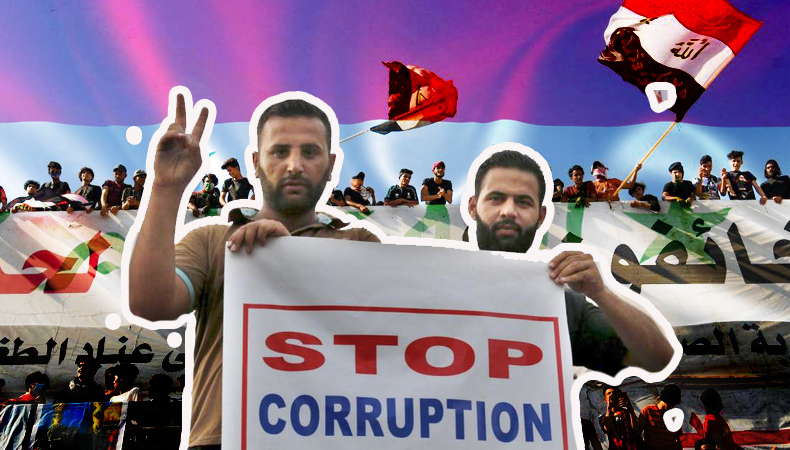Unshackling Iraq: Overcoming Corruption for a Brighter Future

Iraq faces a formidable foe that imperils its very existence: pervasive corruption. This foe lurks in the shadow of the country’s turbulent past and present conflicts. The country’s depressing 157th place on the Corruption Perceptions Index is a clear reminder of its uphill struggle in combating this cunning adversary. Iraq dubbed a “kleptocracy” and plagued by “money laundering cartels” and a “gangster economy,” is at a crossroads and must undertake the difficult challenge of eliminating pervasive corruption while working to restore and redefine its future.
In the ruins of Iraq’s past, a conflict between perception and reality, cause and effect, appears. Even before the 2003 invasion led by the United States, corruption had a stronghold on the nation. The heritage of authoritarianism, lax application of the law, and a patronage culture have produced a climate where corrupt activities flourish. This problem is further exacerbated by the difficulties brought on by violent conflict and a lack of effective institutions. As a result, corruption undermines public confidence in institutions, obstructing development and fostering scepticism. As a result, Iraq finds itself caught in a vicious cycle.
Related Posts
Iraqis are speaking out more frequently to denounce corruption’s destructive effects. Mohammed Shia Al-Sudani, the prime minister, compares it to a menace on par with terrorism. Former president Barham Salih compared corruption to the epidemic of ISIS to emphasise how urgent it is to confront this problem. However, actions must follow words and be coordinated to attack the causes of corruption.
Iraq has long worked to fight corruption, as evidenced by the country’s ratification of the UN Convention Against Corruption, partnerships with international organisations, and initiatives to increase transparency through digital platforms and complaint hotlines. However, the persistence of corruption makes a thorough and ongoing effort necessary.
Additionally, the global community is crucial. As proven by the legacy of UN sanctions and post-invasion reconstruction, history has proved that merely wiping one’s hands of a nation’s problems does not lead to solutions. Recognising its implications, the international community must interact meaningfully and constructively with Iraq, assisting in developing effective government institutions and advocating for open economic practices.
Iraq has tremendous potential, but moving forward will require a firm commitment. Thanks to its abundant natural riches, rich cultural heritage, and advantageous geographic location, the country has all the components it needs to flourish again. Iraq can change its fortunes by resolutely combating corruption and using its resources to promote regional connections, stimulate economic growth, and repair infrastructure.
There is hope despite these obstacles. A growing youth population that hasn’t been marred by terrorism and invasion holds out hope for a better future. Positive change is feasible, as evidenced by the possibility of intelligent investments and slight improvements in health outcomes. Iraq must take advantage of this chance to free itself from the grip of corruption and prepare the road for a more affluent, just, and open society.
The dichotomies surrounding Iraq’s fight against corruption ultimately need to make way for a single goal: the welfare and well-being of its citizens. As the country sets out on this challenging journey, it must decide whether to liberate itself from the control of “kleptocrats” and set sail for a future marked by advancement, wealth, and rekindled pride.








